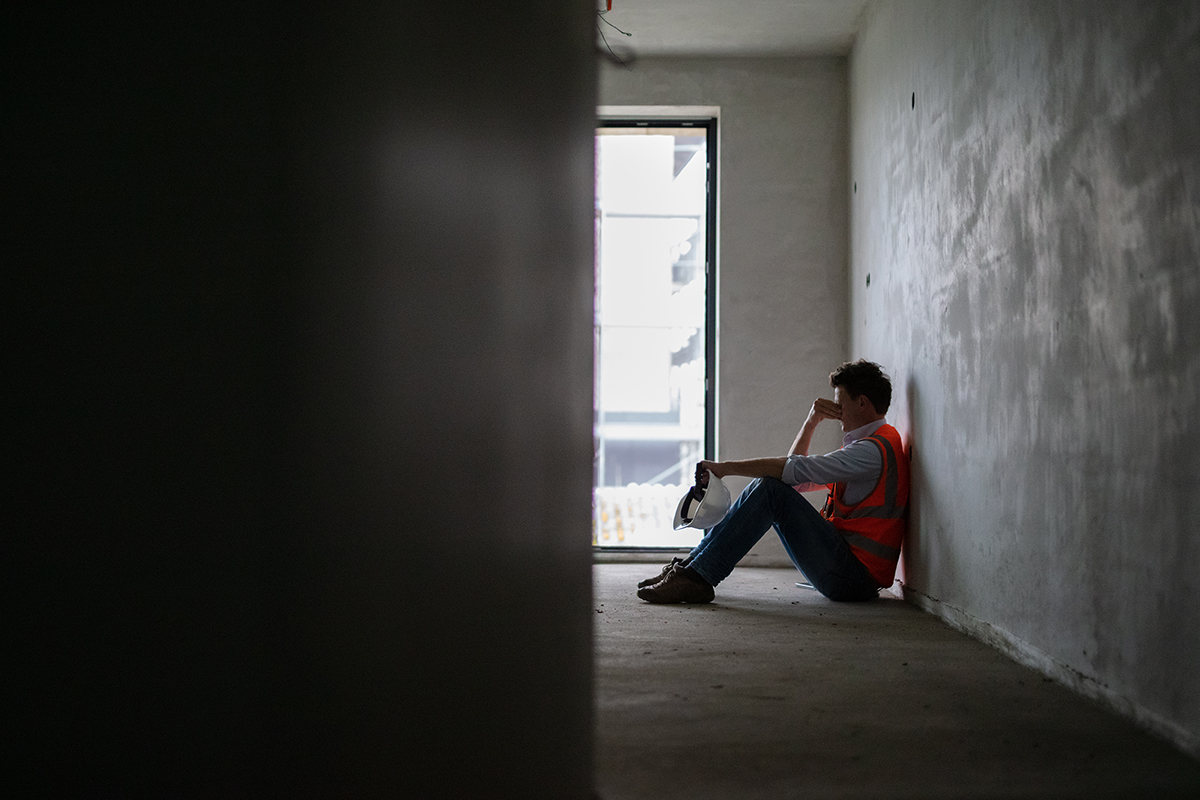Starting the Conversation on Mental Health in Construction
The unique challenges the construction industry faces, and how employers and colleagues can help

Health is certainly an issue on everyone’s minds as we enter a different phase of the COVID-19 pandemic, but mental health remains a taboo topic for many, including those in the construction industry.
Speaking on mental health in the industry, Chris Gardner, president of the Independent Contractors and Businesses Association, based in British Columbia in Canada, shared insights with the audience at the Fenestration & Glazing Industry Alliance Virtual Annual Conference about the stakes of mental health, and how to treat it.
ICBA enrolls 125,000 people on its health and dental plans, which, along with a user survey, gives the organizations some insights on industry workers’ relationship to mental health.
Here are a few takeaways from the conversation, part of the presentation “Impacts of Mental Health and Substance Use in the Construction Industry.”
Why is mental health difficult to treat?
It may seem obvious, but mental health challenges can be invisible to those around a person. “When you have a physical injury, you can see it and people know what to do. The challenge with mental health is that we can’t see it, and what we can’t see is much harder to treat,” says Gardner.
Mental health issues also have a long history of stigmatization. “In the previous generation, people were ostracized, viewed as not fit, even institutionalized if they had mental health issues,” he says. “What people don’t understand or see, creates fear, and that leads to people not being willing to come forward, because they’re afraid of the stigma they may face personally or professionally.”
Why do construction workers have worse rates of mental health?
Gardner cited the statistic during his presentation that the construction workforce experiences suicide rates five times the national average. He says part of the way to change that reality is to start a conversation about mental health, both as an industry generally, and with the people experiencing mental health challenges.
Gardner explains that while very rewarding, construction can be uniquely challenging, especially for those already experiencing a decline in mental health. “Construction is very project driven, with deadlines that have to be met,” he says. “That puts a lot of stress and pressure on the workforce,” who may also be working remotely at times, not seeing family or friends for long stretches of time.
What causes mental health challenges? What are some signs to look for?
There are many triggers that can challenge mental health, including a decline in physical health, the death of a loved one, and financial crisis, says Gardner. The uncertainty around work, including working longer hours during the pandemic due to staffing shortages, can also play a role, he says. “Your team can’t run hot all the time. You just can’t function effectively if you’re working 50-60-80 hours a week.”
There are many signs to look for in colleagues who may be experiencing challenges, he says, especially changes in behavior; someone who is suddenly tired all the time, showing up late, and whose quality of work starts to decline. Their physical appearance may change, and the person may withdraw, stop going to events, or communicating regularly, Gardner says.
How can colleagues and employers help?
Gardner says that seeing the signs listed above is an opportunity to start a conversation with the colleague or worker. He recognizes that this can be a hurdle. “The key is just being able to say, ‘I’ve noticed things aren’t right, let’s go talk to someone that can help,’ and then pointing them in the right direction,” he says. ICBA developed a program to address mental health that is designed to make these conversations easier, says Gardner, not to make project managers into health care workers.
Gardner says it’s also necessary to underline successes on the job, when they happen, to create a more positive work culture. “Rewarding success and recognizing project milestones is also important, and celebrating that success [with workers].”


